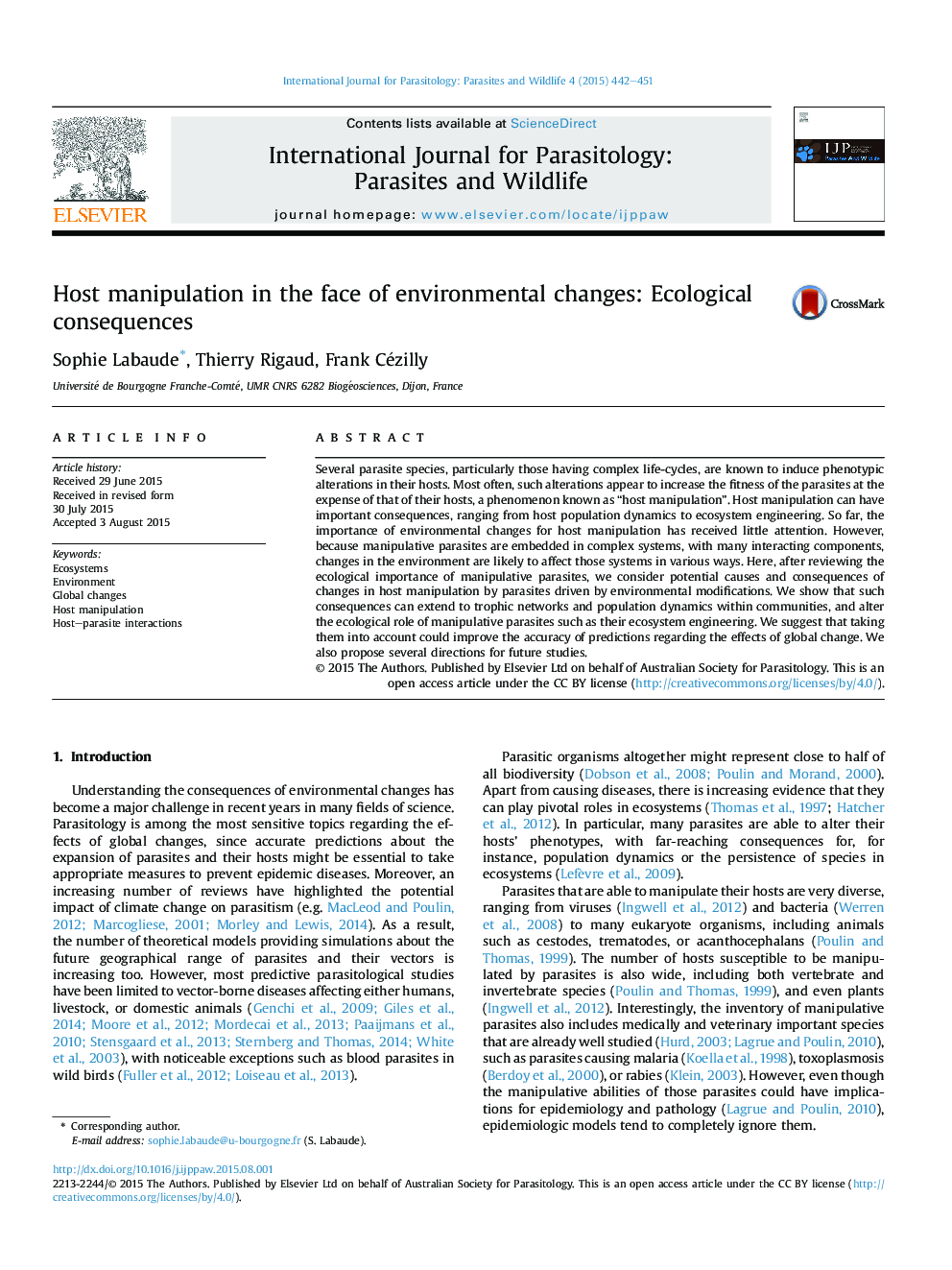| Article ID | Journal | Published Year | Pages | File Type |
|---|---|---|---|---|
| 2055205 | International Journal for Parasitology: Parasites and Wildlife | 2015 | 10 Pages |
•Environmental changes can affect ecosystems in various ways.•Manipulative parasites are known to play numerous roles within ecosystems.•However, the effects of environmental changes on manipulation has been overlooked.•We review those effects and their potential consequences on larger scales.•We conclude with suggestions on the direction of future studies.
Several parasite species, particularly those having complex life-cycles, are known to induce phenotypic alterations in their hosts. Most often, such alterations appear to increase the fitness of the parasites at the expense of that of their hosts, a phenomenon known as “host manipulation”. Host manipulation can have important consequences, ranging from host population dynamics to ecosystem engineering. So far, the importance of environmental changes for host manipulation has received little attention. However, because manipulative parasites are embedded in complex systems, with many interacting components, changes in the environment are likely to affect those systems in various ways. Here, after reviewing the ecological importance of manipulative parasites, we consider potential causes and consequences of changes in host manipulation by parasites driven by environmental modifications. We show that such consequences can extend to trophic networks and population dynamics within communities, and alter the ecological role of manipulative parasites such as their ecosystem engineering. We suggest that taking them into account could improve the accuracy of predictions regarding the effects of global change. We also propose several directions for future studies.
Graphical abstractFigure optionsDownload full-size imageDownload as PowerPoint slide
